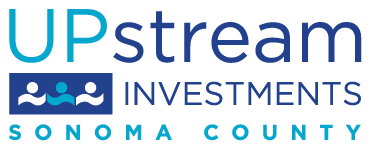Seneca Unconditional Care Model
Seneca was founded in 1985 as an agency committed to unconditional care based on the foundation of love and learning. Using unconditional care, youth are never discharged from service “for showing behavior that originally led to their referral for treatment or placement”. Within this model, love and learning are defined using three streams: 1) a relational stream based on attachment theory, 2) a behavior stream based on learning theory, and 3) an ecological stream which recognizes the importance of contextual factors in the environmental systems. The attachment and learning streams are supported by the historical psychodynamic concepts of “imitation” (i.e., reinforcement to perform a behavior) and “internalization” (i.e., self-regulation of that behavior). Seneca has also found that many of the youth served have experienced trauma with differing degrees of impact on the youth’s functioning and development. Thus, special consideration of trauma and responses to trauma are also incorporated into their model with particular attention to the complex forms of trauma experienced by the youth we serve of early and repeated disrupted attachments, abuse, and neglect. A unique aspect of Seneca’s Unconditional Care Model is the emphasis placed on considering how micro, meso and macro contextual factors also affect experience. It is hypothesized that additional contextual factors affect a caregiver or child’s ability to experience secure attachment and behavioral learning, and a focus on these contextual factors within family programs supports the other two streams. Many of the families served by Seneca experience poverty, and the Unconditional Care Model considers aspects of these conditions when formulating treatment plans. Based on knowledge and information related to these three streams, Seneca staff build and implement customized treatment plans to serve youth and families.
Accepted to the Portfolio: January 2014
Target Outcomes
Short Term Outcomes
- Youth and family accept treatments wan are open to change
- Youth and family are cognizant of their own working models
- Youth have reduction in crisis events
- Youth and family improve ecological strengths and minimize risks
- Youth reduce undesired and increased desired behaviors
- Youth and family have agency over their own goals
- Youth and family are aware of trauma and consequences
Long Term Outcomes
- Improved permanency of youth in community
- Improved youth and family supports and resources
- Improved family functioning
- Improved youth mental health
Target Population
Demographics
- Early Childhood (0 - 5)
- Kindergarten - 12th Grade
- Transitional Age Youth (16 - 24)
Service Area
County-wide:
- Southeast (District 1)
- Southwest (District 2)
- Central (District 3)
- Northeast (District 4)
- Northwest (District 5)
Information
Program Funders
Many thanks to the following funders for making this program possible.
Local Funders
- Sonoma County Department of Human Services
- Sonoma County Human Services Department


 Translate
Translate